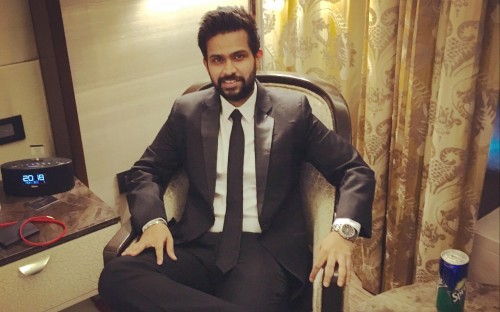And yet, over 80% of Indians prefer to go to business schools abroad - according to figures from the Graduate Management Admission Council (GMAC).
Why? For Gaurav Khaitan, it was about return on investment (ROI). He relocated from Kolkata to pursue a one-year MBA at Aston Business School in the UK, ranked among the best in the world for ROI by the Economist.
He’s not alone. 90% of Aston MBA students are international, many from India. The triple-accredited MBA costs £25,550 ($31,000). 90% of Aston MBA grads land new jobs within six months of graduation, with an average salary increase of over 60%.
Gaurav studied at Aston at undergraduate level and returned for his MBA. After graduating in 2014, he returned to India and landed a management role at Fortune 500 real estate giant JLL. He says Indian employers value a foreign MBA.
Why did you decide to pursue an MBA at Aston?
I was working in real estate in India and I remember that I came across a lot of things I didn’t know. How to strategize a business deal, how to present to a client, even handling and managing data; I thought these were things an MBA would help with.
Aston is one of the best business schools in the UK. I had done my undergrad there. It was like a home to me, and the perfect place to go for my MBA.
Why did you decide to leave India for your MBA?
I looked at ROI. When sitting in front of an employer, having an MBA from Aston in UK definitely has greater value than having an MBA from a school in India. Plus, in India, you still study in the same environment. Once you go abroad, you develop as an individual.
What should applicants think about when deciding to do an MBA?
I’m very much for one-year MBA programs. I don’t think you should take a two-year course like what happens in the US. You need to keep opportunity cost in mind. I also feel that your ROI for one-year MBA will be much higher than for a two-year program. I think one-year programs will continue to grow.
What makes Aston a popular destination for Indian MBA students?
It’s the community there. There are a lot of Asians, Indians, and people from the Middle East in Birmingham. You’ve got Indian restaurants, and the whole ambience gives you a sense of being at home.
An MBA is a very strenuous program. So, having that balance and close community feel is very important. It’s one major reason why I always wanted to go back.
Would you be where you are now without the Aston MBA?
No! It would be very difficult. JLL is one of the top real estate companies in the world right now. For certain roles, they have a set of criteria you have to fulfil, and an MBA is one of them.
When I look back, I think I was very immature when I joined the Aston MBA. I didn’t have the confidence to people from big organizations. But, because of the number of presentations I gave at Aston, because of the number of public speaking events, and the networking I did, my confidence has grown twofold.
I had to go through rounds of presentations, group discussions, and personal interviews. I had to talk about strategy and what I knew about the business world; these were things I learnt from my MBA. Now, I’m in a very good position in India at JLL, doing things which a lot of people my age don’t get the opportunity to do.
RECAPTHA :
55
ea
33
df




 1
1 



Comments.